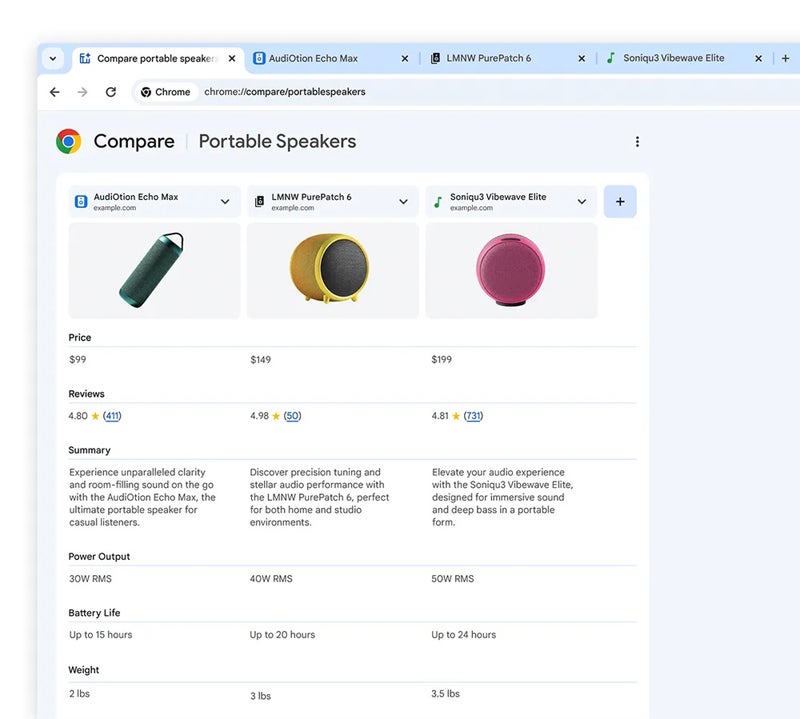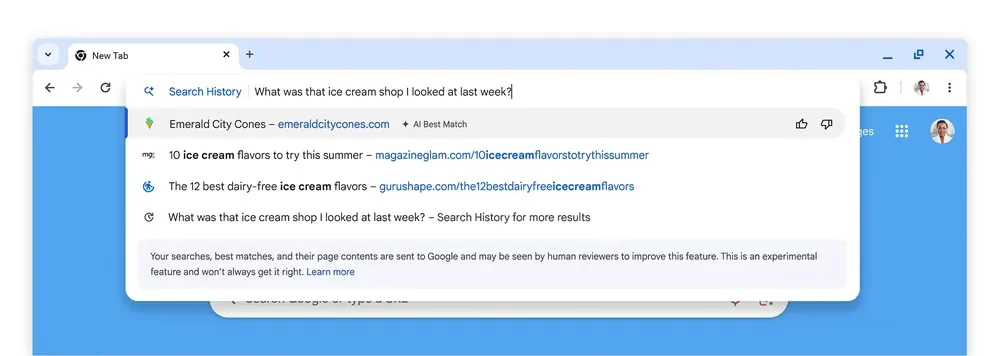Google Chrome users on Mac, PC, or Chromebook will soon see some new features designed to make searching the web more flexible. The new features are enabled by Google Gemini and other Google AI models.
Google Chrome's last major AI update was in May, when it announced Gemini functionality in Workspace and added AI-generated answers to some search queries.
What are the new features in Chrome?
The three new features are:
- Google Lens in Chrome on the desktop browser.
- Tab compare, an automatically generated comparison tool for online shopping.
- Natural language search in browser history.
Google Lens allows users to select specific elements from an image or web page. It's great for shopping, as it can tell you where to buy an object in a photo. Google Lens also answers general queries, such as searching the web for a certain type of plant or more information about an equation.
SEE: Google Workspace was the target of a vulnerability that exposed thousands of accounts. (TechRepublic)
Google Lens can be accessed in Chrome by clicking and dragging from the address bar or context menu or by right-clicking.

Tab comparison generates a chart that lists the attributes of two or more products. Users can create a comparison table for products from different markets and suppliers, as long as they align those products on tabs.
“We’re hearing from users asking for help comparing online,” Parisa Tabriz, vice president of Chrome at Google, wrote in a press release.

Perhaps the most notable update to Chrome from a security perspective is the ability to search your browsing history using natural language. Google also suggests a consumer use (the question “What ice cream shop was that I visited last week?”), but it could also have enterprise applications, such as searching across various meetings and communication platforms.
Precautionary features implemented around search history include:
- Using the AI search feature is optional.
- The AI search feature can be disabled in Chrome settings.
- The AI search feature never includes incognito browsing data.
Tabriz said Google is leveraging AI to make it easier for users to “quickly accomplish tasks and find the information they want.”
“Our goal is to continue making your browsing experience even more useful, through the power of AI,” he explained. “So there’s still a lot more to come.”











